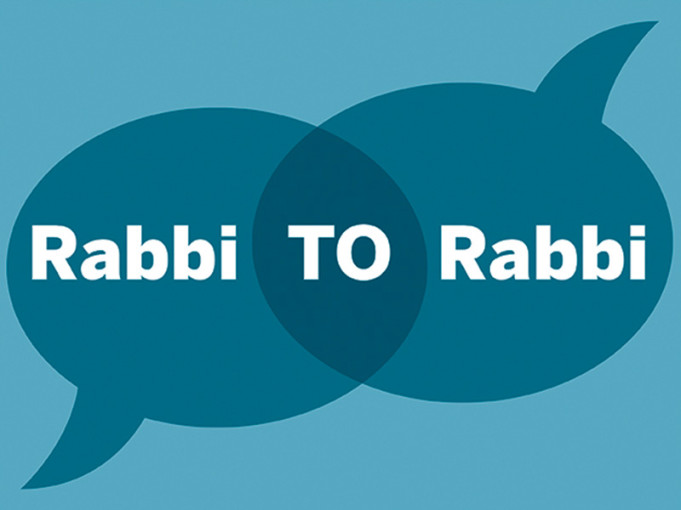Despite Judaism’s legal tradition, the court system has proven insufficient in vindicating
women’s voices. But how much, if any, blame should be ascribed to a culture of casual sex?
Rabbi ADAM CUTLER
Beth Tzedec Congregation, Toronto
Rabbi Daniel Mikelberg
TEMPLE SINAI CONGREGATION, TOroNTO
Rabbi Mikelberg: Justice for all is an essential theme in Judaism – both victim and accused need to be considered. In Temple times, the Great Sanhedrin sat in Jerusalem to serve the essential judicial needs as a religious and civil court. Communities of 120 people or more had a Lesser Sanhedrin.
However, even as we traditionally have a legacy of providing effective tools to make judgments, recent days have revealed that courts are often inadequate. Women and minorities have lacked the means to have their voices honoured, believed and heard. Until we adjust our societal ways to better care for all our citizens, it is important that we go out of our way to trust survivors and listen with compassion.
Rabbi Cutler: We can agree that allegations about sexual misconduct have for too long been swept under the rug. All organizations, including those within the Jewish community, must develop robust systems that educate against improper behaviour, encourage reporting of misdeeds and deliver appropriate consequences for those who breach standards. Fortunately, much of this work has long been developed by groups like Advancing Women Professionals and the Jewish Community.
When I consider the repetition in the Torah dictum “justice, justice, you shall pursue,” I think about the need to deal with both the accused and the accuser justly. Yet, justice for one may mean injustice for the other. Where do we find the balance?
Rabbi Mikelberg: We’re currently recalibrating our society’s views on reporting sexual misconduct. For too long, powerful figures have been able to act coercively without consequences. True, the pendulum has currently swung in the opposite direction as we take note of our inadequacy. I pray that in the pursuit of justice we will identify a fair pathway for all parties. But to “pursue” this path is too soft. Let’s chase after it.
In the Reform movement, we are currently celebrating the 10th anniversary of the publication of Women’s
Commentary to the Torah. Surprisingly, we only recognized the need to study the Torah from a woman’s perspective, drawing out the voices that are often silent in the text, in the 21st century. Similarly, today we are called to review all societal norms, creating a fair and egalitarian society, by drawing out the beautiful voices within.
Rabbi Cutler: Though the Torah sets up marriage as a partnership of two unequal parties, Prof. David Novak writes, “One can see the entire development of Jewish matrimonial law as the steady emancipation of women from anything even resembling slavery, for subjugation of one human person by another is inimical to human fulfilment, including human sexual fulfilment.”
One of the most disconcerting elements of recent sexual misconduct allegations is that there is a structural power imbalance between the two individuals. While there certainly can be a healthy, long-term relationship in which one partner has hierarchical status over another, such a relationship also easily leans towards abuse.
I also think that liberal Jewish communities, in particular, must do better to preach against the kind of casual hookup culture from which these recent allegations emerge. Judaism is most certainly a sex-positive religion, but intimacy, our tradition teaches, is something to be shared between two loving partners.
Rabbi Mikelberg: An important topic that I have been hearing concern about in recent days is consent. Does “yes” always mean “yes”?
Our tradition could not have anticipated modern dating rituals that rely on technology and apps. Even as people meet in new forms, each of us can continue to aspire to be a mensch. Those rules are constant.
Rabbi Cutler: In Judaism, consent is necessary, but not sufficient. Concerns regarding power imbalance, coercion and force must, of course, be addressed. However, the Jewish conversation about sex has primarily focused not on whether both partners said “yes,” but rather on mutual commitment in the context of a long-term relationship.
Ours is not a religion that preaches asceticism. We are meant to appreciate and enjoy the world – one of God’s greatest gifts to humanity. We should enjoy the pleasure of a life-partner. Yet, pleasure has prescribed bounds. Not everything that makes us feel good can be sanctified.
